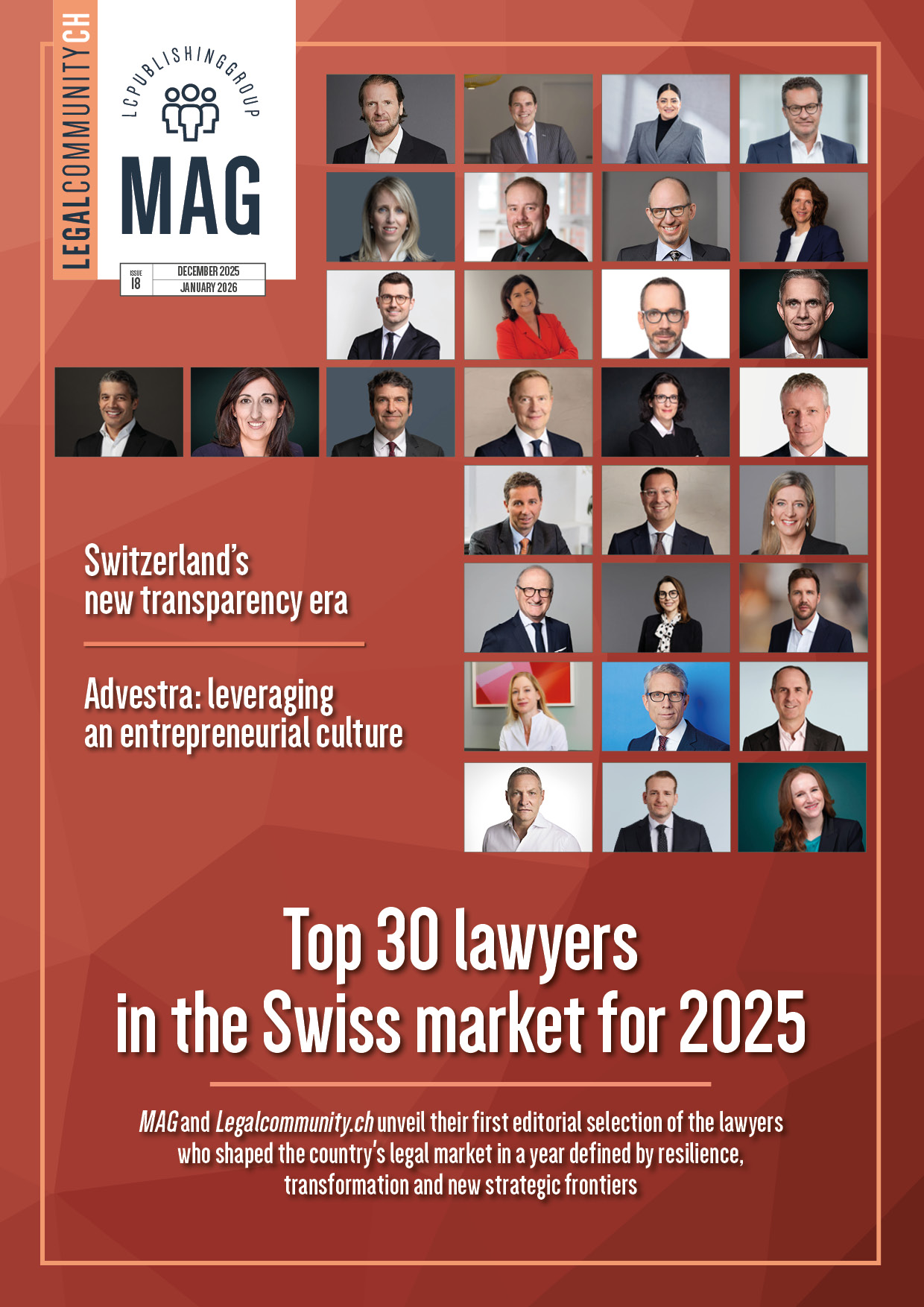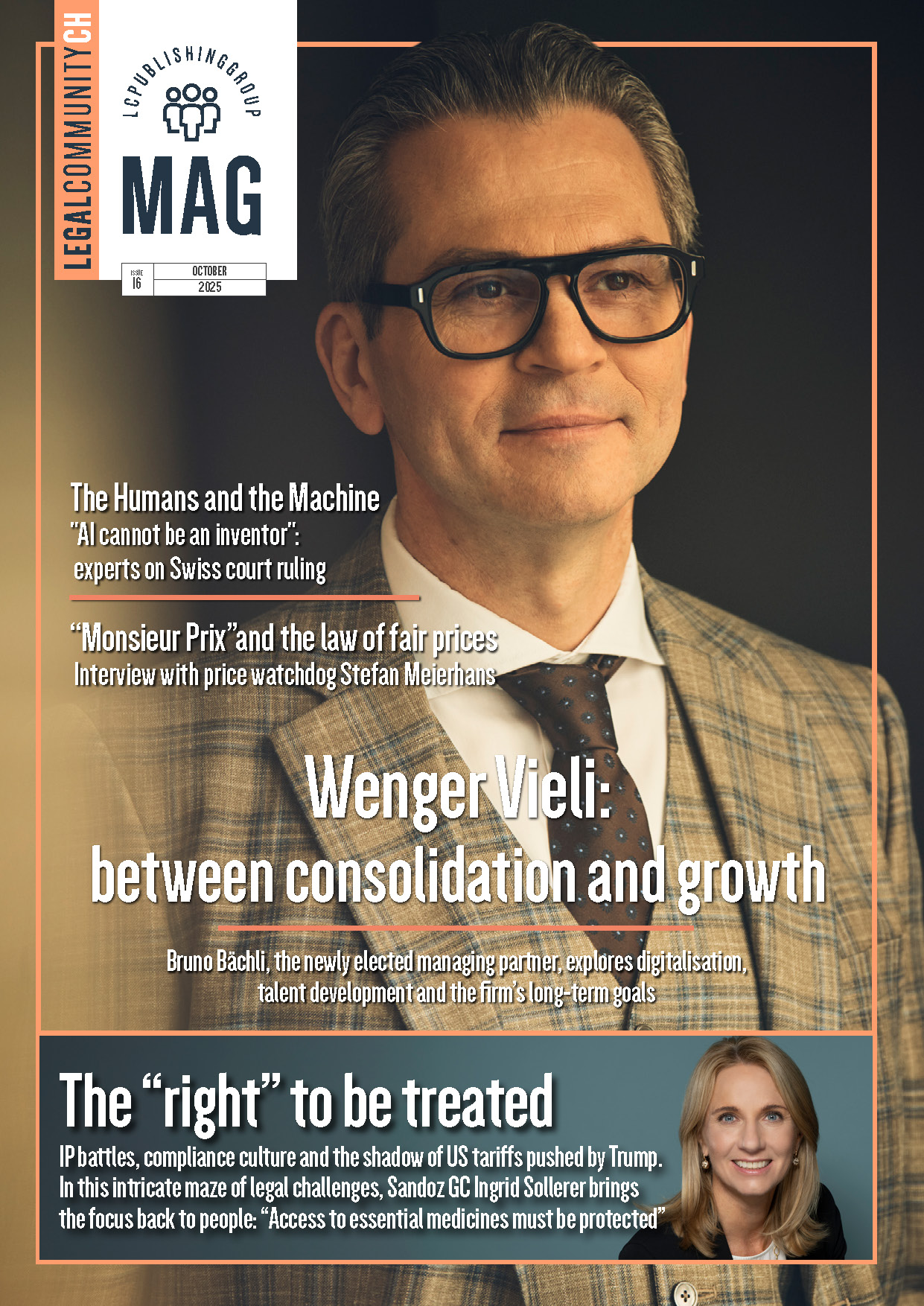Adapting to changes: Nkf’s strategic outlook
by claudia la via
When the financial support measures taken by the Swiss Federal Council to support businesses suffering from the effect of the coronavirus pandemic came to an end in 2022, the number of bankruptcies of Swiss companies sharply increased by 22% compared to 2021. However, 2022 set a record level of M&A activity in Switzerland. Even though there was a noticeable decrease in the number of deals involving Swiss targets in 2023, a record was still set for acquisitions by Swiss companies abroad. Contrary to the popular opinion that Swiss companies are increasingly being bought up by foreign companies, the data paint a different picture indeed: last year more Swiss companies made acquisitions than were the target of acquisitions. MAG asked Philippe Weber, partner and former managing partner at Niederer Kraft Frey, who regularly represents Swiss and international clients in some of the largest and most complex corporate/M&A, capital markets and banking transactions in Switzerland, about his expectations for M&A deal-making in 2024. “We have seen a promising start, with a significant number of inquiries for new deals from both “buy” and “sell” side as well as corporate reorganizations such as spin-offs and portfolio adjustments throughout various sectors. However, it is too early to say whether this will indeed translate into a larger number of closed transactions compared to 2023. The geopolitical environment remains challenging and I expect that major trends experienced in 2023 will continue throughout 2024”, Weber states.
What are the major trends arising?
A number of important extraordinary external factors have marked M&A and capital markets activity in the past years. Just think about covid, elevated inflation and higher interest rates, the war in Ukraine and most recently the escalation of the Gaza-Israel conflict. Looking forward, in 2024, an unprecedented number of voters will head to the polls, which fuels further uncertainty. As a result of these and other factors, we have seen various trends arising in the M&A market.
Such as?
First of all, deals generally take longer and the number of aborted transactions has increased significantly. Secondly, and somewhat related to the first trend, deals, especially cross-border ones, have become more complex as parties must cope with higher uncertainty and be creative about how to bridge continuing valuation gaps. This is, for instance, illustrated by a significant increase in deals with deferred consideration such as earn-outs or milestones, to mention a few examples. Moreover, cross-border deals undergo greater scrutiny from national and supranational authorities, as illustrated by the ever-increasing number of foreign investment control regulations in the Eu and the stricter application of merger control rules in the Us for instance.
What happens to listed companies?
While generally stock exchange indices have reached historical highs, many listed companies trade at lower levels than their high and must ask themselves whether being off-exchange would allow them to better navigate external challenges. As a result, we note an increasing number of potential public takeover and public-to-private transactions.
How is this affecting the legal framework from Nkf perspective?
These trends, in fact, work in our favour. Indeed, in difficult times clients tend to revert to tier 1 firms, and trusted personal relationships become even more decisive. Personally, I am therefore convinced that challenging economic times present great opportunities for Nkf, which has been successful in the market for decades and enjoys a reputation for approaching complexity and change with creativity and confidence.
What are the most common types of M&A and capital markets transactions you have been involved in the last few years?
I have been very fortunate to have been involved in many of the largest and most complex Swiss M&A transactions of the past years. Being equally an M&A and capital markets lawyer, deals that I work on will typically involve listed or large regulated entities or private equity firms and have a cross-border element. For example, in 2023 my team and I acted for Bain Capital in their 3 billion Swiss franc takeover offer for SIX-listed SoftwareOne; for CGS Management in the sale of R&S Group to SIX-listed VT5 Acquisition Company (the first ever Swiss De-Spac transaction); and for Macquarie in the up to 325 million dollar investment in Swiss-headquartered greentech company Atlas Agro Holding. Other interesting recent engagements include the 1.14 billion Swiss franc public takeover of SIX-listed Valora Holding by Nyse and Mexico-listed Femsa, a company with more than 390,000 employees; the 2.05 billion Swiss franc acquisition of Avaloq group by Tokyo-listed Nec; or the 2.75 billion Swiss franc acquisition of Six Payment services by Paris-listed Wordline. In all these transactions, I worked along with fantastic partners like Thomas Brönnimann, Philipp Candreia and Deirdre Ni Annrachain, just to name a few.
What about capital markets?
Despite the difficult environment we have continued to be very busy in this area with a noticeable peak this April, acting as bank counsel the 2 billion Swiss franc Ipo of Galderma (the largest European Ipo in 2024 to date), as issuer counsel the very complex 300 million euro capital raise of Swiss Steel group and, again as bank counsel, the 115 million Swiss franc convertible bond of Medartis.
How is both the M&A and the capital market framework in Switzerland nowadays compared to other countries?
Thus far, Switzerland has generally benefited from being a rather open economy and a less regulated market. This is a significant advantage which a small country with essentially no natural resources should preserve carefully. For example, to date Switzerland has not adopted Eu and Us style foreign investment controls and while parliament has asked for such rules, the respective proposal presented “contre coeur” by the Swiss Government is much lighter than comparable rules in certain Eu countries and in the Uk. Likewise, in capital markets, while Switzerland has recently introduced Eu-style prospectus rules, Six Exchange regulation, which is in charge of enforcing these rules, refrains from being overly formalistic and generally is very supportive. This makes the listing process efficient and predictable.
















